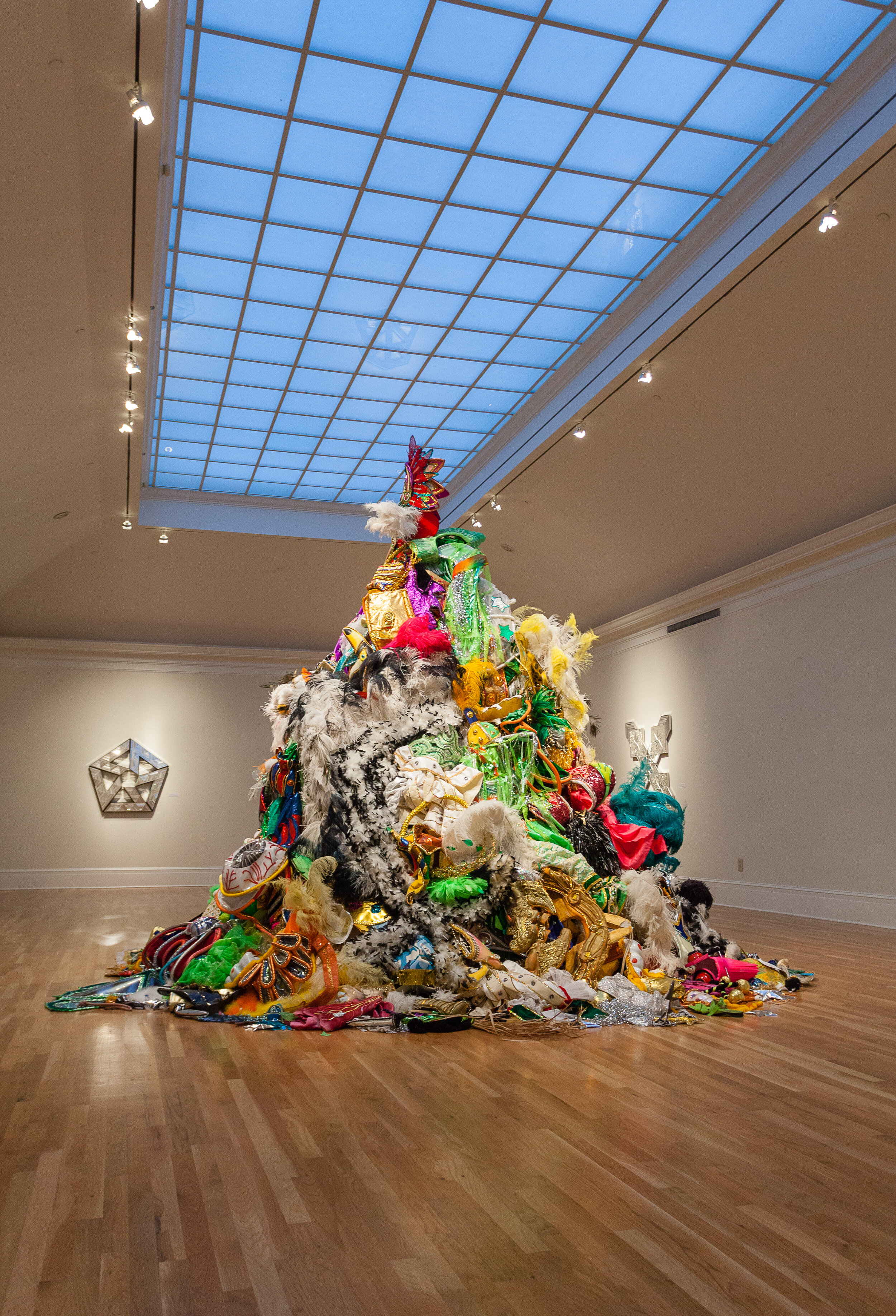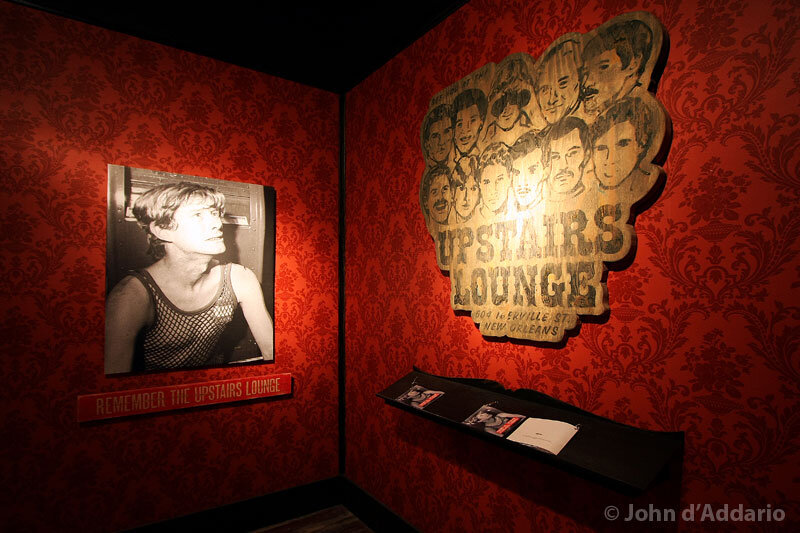Prospect: An Overview
A recurring civic exhibition of art is an idea that originated with the Venice Biennial in 1895. Designed according to this model, Prospect is a citywide contemporary art triennial and the first exhibition of its kind in the U.S. with a decade-long history.
Every three years, we invite artists from all over the world to create projects in a wide variety of venues spread throughout New Orleans. We bring new art to an old city, both inviting artists from around the globe to engage with New Orleans and raising the voices of artists who represent the Global South. Many Prospect projects are rooted in social justice issues and the city of New Orleans itself. Each iteration of Prospect is organized by a leading voice in the curatorial field. For residents and visitors alike, Prospect is an invitation to experience the city through the eyes of artists.
Prospect is also more than a recurring exhibition. In collaboration with local arts and cultural organizations and community partners, our year-round programming generates platforms for past and present Prospect artists in our community, sparking dialogues with youth, students, and public audiences.
We strive to be a model for the social and economic impact that a citywide art exhibition can have. But to us, our work is much bigger than this city. We aim to also be a global model for crafting equal and inclusive communities——where culture, history, and talent are all recognized and uplifted.
Prospect: History and Impact
After Hurricane Katrina, New Orleans’ art community gathered to ask this question: what could the role of artists be in rebuilding the city?
Dan Cameron, who had previously curated the 2003 Istanbul Biennial, the 2006 Taipei Biennial, and many other major exhibitions, saw an opportunity: the US didn’t yet have an international biennial or triennial on the scale of those in Venice, Sao Paulo, Sydney, Taipei, Istanbul, and many other locales across the globe. New Orleans, with its rich history and legacy as the first US city to host a recurring international exhibition beginning in 1884, was the perfect place to found such a venture. Cameron began work with community stakeholders like gallerist Arthur Roger and curator Bill Fagaly; in 2007, Prospect New Orleans was born, with Cameron as its Founding Director.
Prospect.1 (2008-2009), curated by Cameron, is now viewed as a seminal exhibition for how artists interacted with nontraditional venues, often in the form of social engagements, in a landscape still devastated by the storm. When the exhibition opened in 2008, it was the largest biennial of international contemporary art ever organized in the nation’s history and perhaps the most influential exhibition ever launched in the city of New Orleans.
After the close of Prospect.2, the exhibition officially began operating on a triennial schedule and intensified its focus on programming and deepening relationships with local organizations. In addition to Cameron, who curated Prospect.1, Prospect 1.5, and Prospect.2, Prospect curators have included Franklin Sirmans (Prospect.3), Trevor Schoonmaker (Prospect.4), and Naima J. Keith and Diana Nawi (Prospect.5).
Prospect is now a major event in the city’s cultural calendar and within the global biennial/triennial schedule. At least 100,000 visitors experience each Prospect and its associated programs. The exhibition generates $10m in total economic impact and $800,000 in municipal and state tax revenue.

Andrea Fraser, Monumento as Fantasias Descartadas, 2014. Installation View at Newcomb Art Gallery, Prospect.3. Photo: © Scott McCrossen/ FIVE65 Design.

Kara Walker, Katastwóf Karavan, 2017. Installation view at Algiers Point, Prospect.4. Photo: Miguel Luciano.

Jennifer Odem, Rising Tables, 2017 . Installation View at Crescent Park, Prospect.4. Photo: Jay Cadwell.

Naama Tsabar,Composition 21, 2017. Performance in Washington Park,Prospect.4. Photo: © J Caldwell.

Conversation with John Akomfrah, 2017. Prospect.4. Photo: Jay Cadwell

Mark Bradford, Mithra, 2008. Installation view in the Lower 9th Ward, Prospect.1. Photo: John d’Addario.

Skylar Fein, Remember the Upstairs Lounge, 2008. Installation view at the Contemporary Arts Center, Prospect.1. Photo: John d'Addario.
Prospect Statement on Anti-Racist Values
When Prospect began as an organization in 2007 in the aftermath of Hurricane Katrina, its purpose was simple and twofold:
1) To create a major recurring exhibition of international contemporary art by offering artists the centuries-old, multicultural city of New Orleans as context and inspiration; and
2) To drive visitors and much-needed tourism revenue to the city, still reeling from environmental devastation.
Over the next many years and now preparing for our sixth triennial exhibition, Prospect has championed artists whose work responds to the intricate histories of New Orleans, addressing issues ranging from environmental justice to social and labor inequality and confronting the most pressing political issues of our time. Now, in 2022, Prospect recognizes the need for an updated organizational statement of core values and philosophical ideals that responds to and aligns with our mission, our artists, and our city. We are committed to these values and we establish the following standards of conduct against which our actions and decisions may be assessed:
Prospect Condemns all Forms of Racism
Prospect is an anti-racist organization; it categorically condemns all forms of systemic racism, violence, bias, aggression, discrimination, and marginalization of Black, Indigenous, and all Peoples of Color (BIPOC) based on race, intersectionality, ethnicity, and socioeconomic status. We pledge our solidarity with the Black Lives Matter movement in New Orleans and throughout the world. The killings of George Floyd, Ahmaud Arbery, Breonna Taylor, and many other BIPOC people whose names have not become as immediately recognizable are the result of a white supremacist culture. That culture allows for systemic violence and institutional racism to be committed by white Americans against BIPOC Americans without consequences.
a) Prospect does not discriminate based on race. Prospect holds itself to rigorous standards of conduct to ensure that its actions and decisions reflect its condemnation of all forms of racism.
b) Prospect does not knowingly work with individuals, businesses, corporations, or other organizations who do not demonstrate a commitment to non-discrimination against BIPOC individuals in their actions, employment practices and policies.
c) The board, staff, and artistic directors of Prospect whose responsibility it is to lead and represent the organization commit to listening to our fellow BIPOC staff members, artists and board members on issues of race, more than we speak. Where we encounter injustice, we will condemn it, even when it is uncomfortable to do so.
Prospect Champions the Voices of Underrepresented Artists
Artists’ voices are essential to social progress. Prospect is committed to enabling artists to make work they may not otherwise have had the opportunity to create.
Since its founding, Prospect has exhibited and promoted the work of underrepresented BIPOC artists, who have historically been excluded from opportunities to show work (particularly work that confronts racial politics) in significant exhibitions such as Prospect. We will continue to promote and champion the work of BIPOC artists.
Prospect is Committed to Sharing Resources with Organizations Serving the New Orleans BIPOC Community
Prospect is committed to fostering a flourishing local ecosystem of BIPOC artists and cultural organizations through collaboration, because doing so enhances our work.
Prospect will continue to share its professional knowledge, create collaborative programming specifically for disadvantaged communities in our city, work with BIPOC-owned businesses, and actively seek to bring funding and resources to bear for New Orleans-based artists and cultural organizations.
Prospect is Committed to Building a Diverse and Inclusive Board
Prospect’s commitment to racial diversity is apparent in the staff and artistic directors it employs and the artists it invites to exhibit.
We believe that our board should also reflect the diverse demographics of New Orleans and the artists whose work we exhibit. We will continue to demonstrate our commitment to equity by recruiting BIPOC board members who believe in our mission and who represent communities, cultures, skill sets and points of view which will enrich the leadership of our organization.
